|
Dear Colleagues,
I am pleased to include another issue of RFS Briefings with some timely and encouraging updates on women in science.
The Pearl Meister Greengard Prize, an international award recognizing outstanding women in biomedical research awarded annually by The Rockefeller University, was presented on September 30 by Mary Schmidt Campbell, President of the Spelman College, to the 2021 recipient Pamela J. Björkman, David Baltimore Professor of Biology and Bioengineering at the California Institute of Technology. Read more.
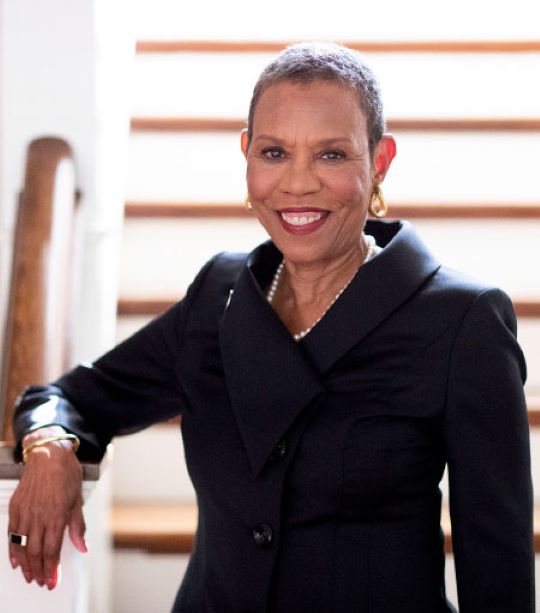 Mary Schmidt Campbell, Spelman’s 10th president. Image: Spelman College Mary Schmidt Campbell, Spelman’s 10th president. Image: Spelman College
Please continue to share important news and opportunities with us so that we may share it with you, and others who are committed to supporting the careers of exceptional women in science.
Stay safe and sound,

Karla Shepard Rubinger
Executive Director
Rosalind Franklin Society
www.rosalindfranklinsociety.org

She is breaking glass ceilings in space, but facing sexism on Earth.
Col. Wang Yaping is set in the coming weeks to be the first Chinese woman to walk in space as China’s space station glides around Earth at 17,100 miles per hour. And yet, as she began a six-month mission last week at the core of China’s ambitious space program, official and news media attention fixated as much on the comparative physiology of men and women, menstruation cycles, and the 5-year-old daughter she has left behind, as they did on her accomplishments. Steven Lee Myers reports for The New York Times.Read more.
At MIT, Nobel laureate Frances Arnold describes innovation by evolution.
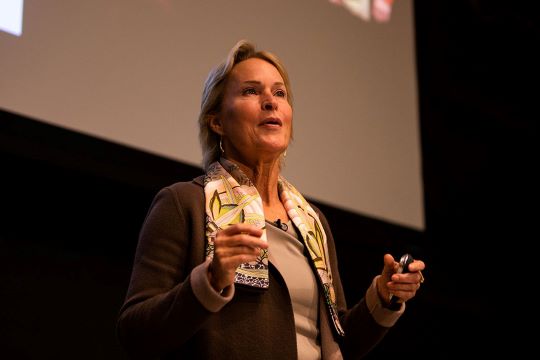 Frances Arnold. Photo: Jake Belcher Frances Arnold. Photo: Jake Belcher
“As engineers, we want to create things that don’t necessarily exist on the planet, or may have never existed, but that solve real problems,” said Frances H. Arnold at the 2021 Hoyt C. Hottel Lecture in Chemical Engineering on Oct. 1. Read more.
Women’s professional STEM societies rethink gender diversity.
Scientific understanding is evolving to recognize that both biological sex and the cultural construct of gender lie on a continuum. And robust evidence supports the notion that racial, gender, and cultural diversity leads to better science. But who should take on the mantle of champion for people who aren’t represented by traditional academic and professional organizations? Read more.
Louise Slade, scientist who studied the molecules in food, dies at 74.
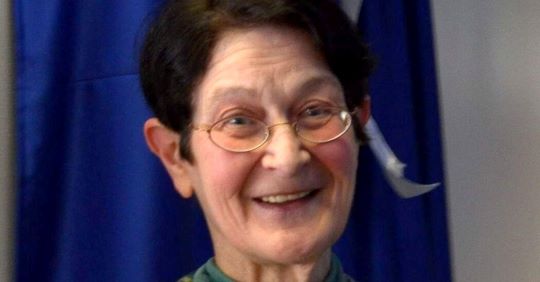
Louise Slade, a groundbreaking food scientist whose work you can thank for soft-from-the-freezer ice cream, extra-chewy cookies and potato chips that retain their satisfying crunch despite being baked and not fried, died on October 7 in Morristown, N.J. She was 74, The New York Times reports. Read more.
They look for the women who are changing the world through science.
Despite the increase in the number of women enrolled in scientific careers in recent decades, the global number of female researchers in the field of science is still very small. 3M seeks to motivate and inspire more girls and women to perform in STEM disciplines. For that reason, it launches its call for the second edition of 25 Women in Science Latin America 2022. Read more.
Muriel Lezak, leading authority on brain injuries, dies at 94.
Muriel Lezak, a neuropsychologist who wrote a landmark textbook in the early days of her discipline that became an essential guide to the description and evaluation of brain injuries and disorders, died on October 6 in a memory care facility in Portland, Ore. Read more.
Heels: A New Account of the Double Helix.
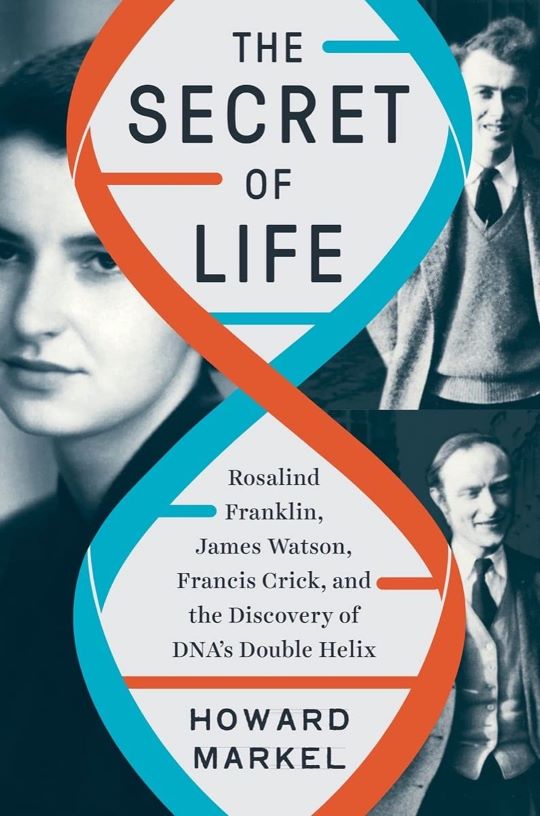
Nathaniel Comfort, professor of History of Medicine at Johns Hopkins University, reviews the book The Secret of Life: Rosalind Franklin, James Watson, Francis Crick, and the Discovery of DNA’s Double Helix by Howard Markel. “ Essentially all of the men around her, Markel argues, colluded to short-circuit her career, drive her out of the double helix race, and deny her credit for the discovery. Markel’s argument fails for a peculiar reason: not because he misstates Franklin’s treatment (although at times he does), but because for all his gallantry, Franklin remains overshadowed. The world he creates on the page is just as simplistic and male-dominated as the one he seeks to replace.” Read more.
Lost Women of Science launches podcast series to promote the remarkable women of science you've never heard of.
Journalist and author Katie Hafner, and bioethicist Amy Scharf, announced the launch of the Lost Women of Science podcast series. The first season will include four in-depth episodes centered on Dr. Dorothy Andersen (1901-1963), a pediatric pathologist who identified and named cystic fibrosis in 1938. Read more.
National awards and female emergency physicians in the United States: Is the "recognition gap" closing?
The gender gap in emergency medicine awards has narrowed in the last 20 years but still exists. This discrepancy is an example of how bias can compound over time to generate gaps in recognition, career advancement, and promotion. The pipeline to award nominations should be addressed at the individual, departmental, awards committee, and organizational levels. Read more.
$10 million announced to support algae-feed research for U.S. dairy.
A new $10 million grant will bolster research into algae-based feed supplements that could increase environmental sustainability in the dairy industry while improving milk production. The five-year grant from USDA Sustainable Agriculture Systems Program will support a research team, led by Nichole Price with Bigelow Laboratory for Ocean Sciences and Colby College, as it tests algal feed additives and assess the product’s impact on animals, farms, communities, and the planet. Read more.
Pamela McCorduck, historian of artificial intelligence, dies at 80.
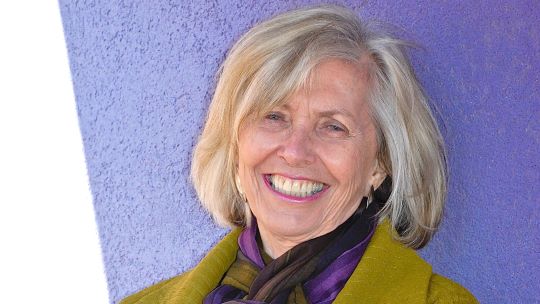
Pamela McCorduck, whose encounters with eminent computer scientists in the 1960s and ’70s led her to write a groundbreaking history of artificial intelligence over the field’s first 20 years, died on October 18 at her home in Walnut Creek, California. She was 80, The New York Times reports. Credit: Jill Fineberg Photography. Read more.
COP26: Why are women still missing at the top climate table.
In a speech to The Energy Law Institute’s Annual Clifford Chance Lecture in October 2021, Emma Howard Boyd CBE, Chair of the Environment Agency said, “Women have to shout louder than men to be heard. Women have held just 28% of the share of voice in news articles about climate change.” Read more.
Marianna Limas, Social Media Manager
Nilda Rivera, Partnership and Events Manager
|






